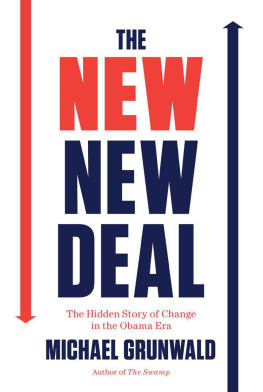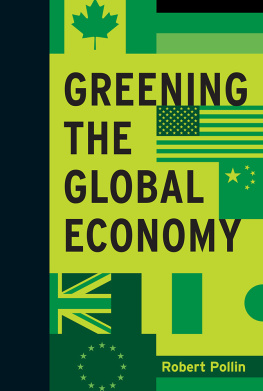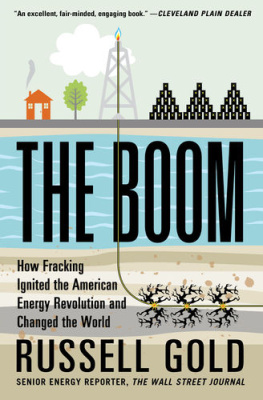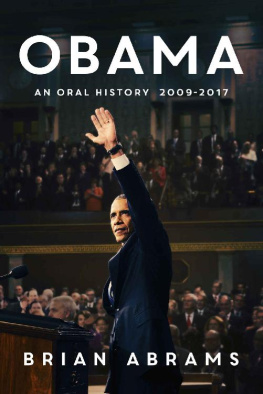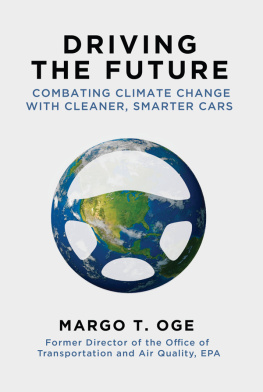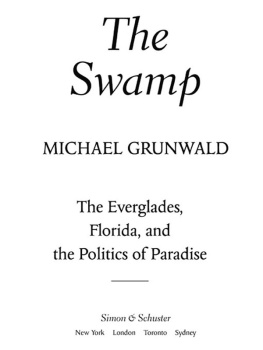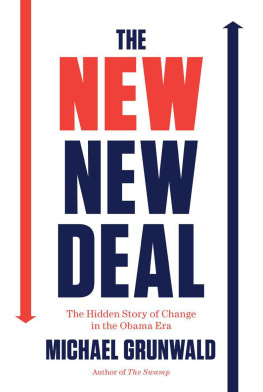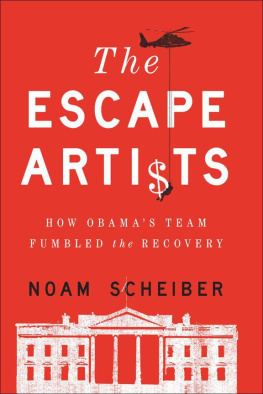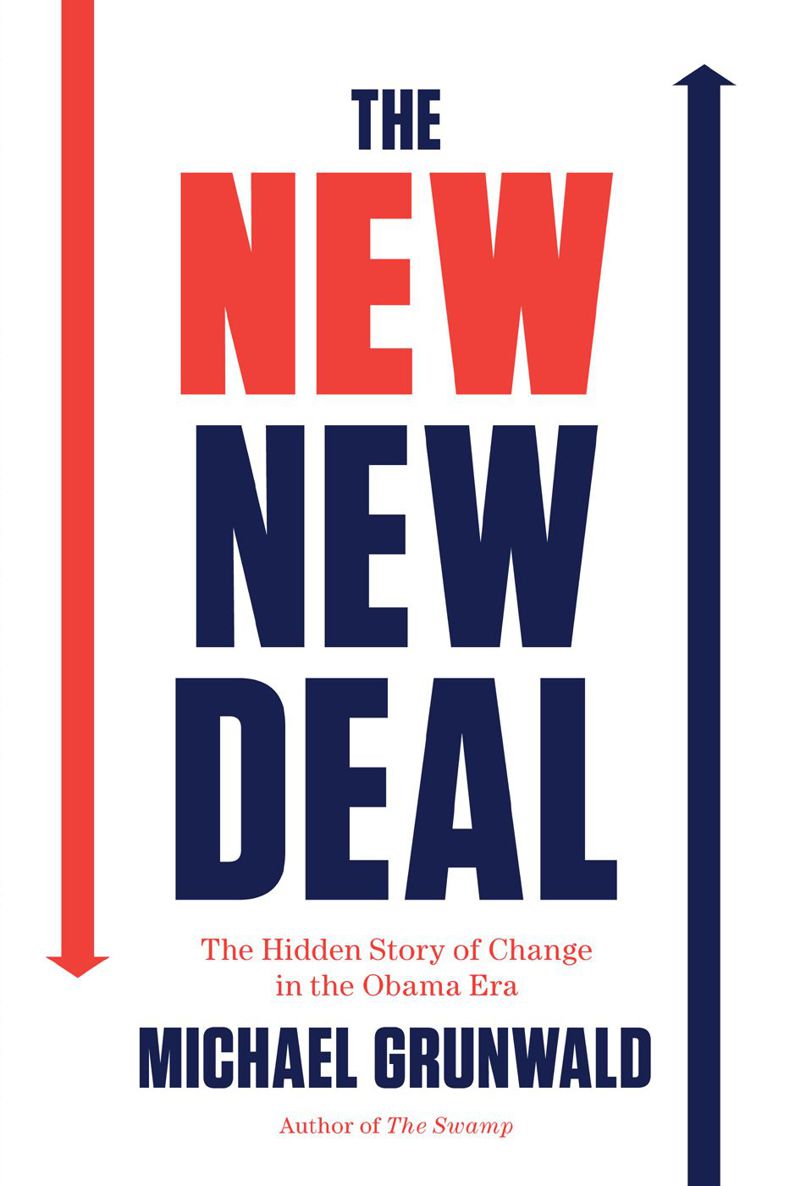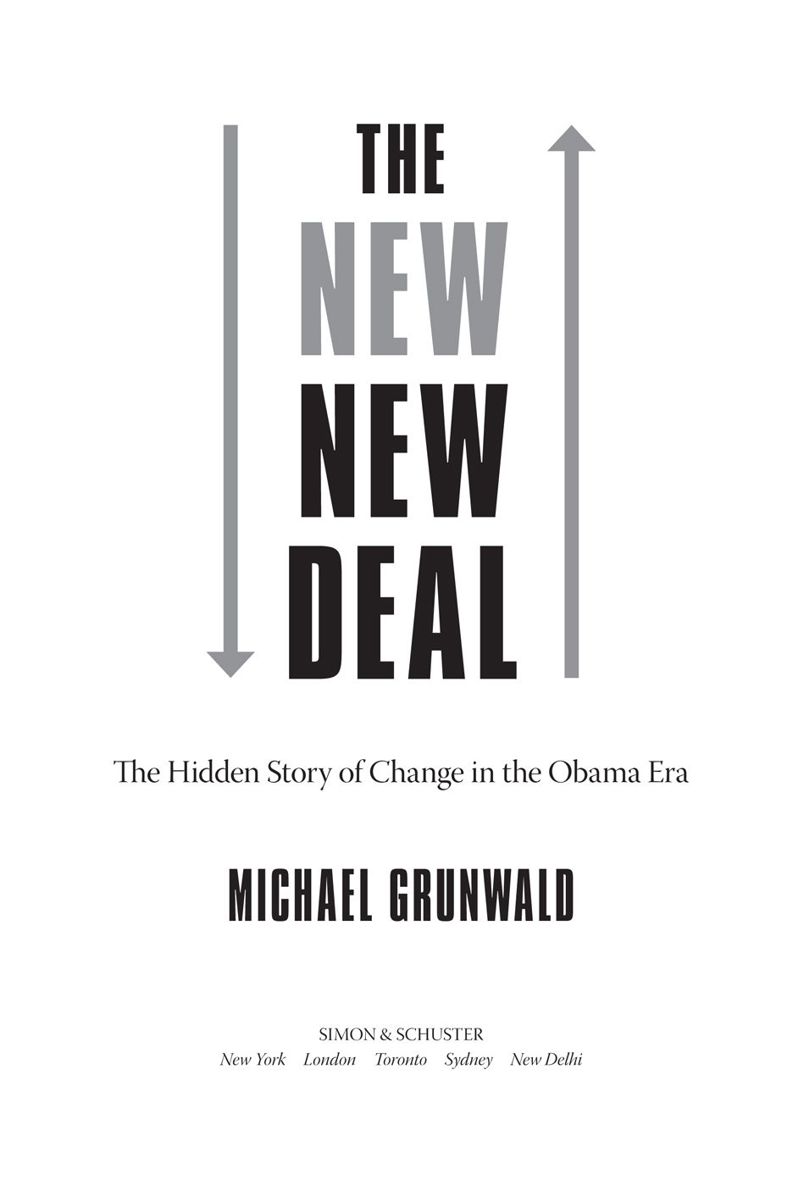Grunwald Michael - The New New Deal: The Hidden Story of Change in the Obama Era
Here you can read online Grunwald Michael - The New New Deal: The Hidden Story of Change in the Obama Era full text of the book (entire story) in english for free. Download pdf and epub, get meaning, cover and reviews about this ebook. City: New York;United States, year: 2012, publisher: Simon & Schuster, genre: Politics. Description of the work, (preface) as well as reviews are available. Best literature library LitArk.com created for fans of good reading and offers a wide selection of genres:
Romance novel
Science fiction
Adventure
Detective
Science
History
Home and family
Prose
Art
Politics
Computer
Non-fiction
Religion
Business
Children
Humor
Choose a favorite category and find really read worthwhile books. Enjoy immersion in the world of imagination, feel the emotions of the characters or learn something new for yourself, make an fascinating discovery.
- Book:The New New Deal: The Hidden Story of Change in the Obama Era
- Author:
- Publisher:Simon & Schuster
- Genre:
- Year:2012
- City:New York;United States
- Rating:4 / 5
- Favourites:Add to favourites
- Your mark:
The New New Deal: The Hidden Story of Change in the Obama Era: summary, description and annotation
We offer to read an annotation, description, summary or preface (depends on what the author of the book "The New New Deal: The Hidden Story of Change in the Obama Era" wrote himself). If you haven't found the necessary information about the book — write in the comments, we will try to find it.
In a riveting account based on new documents and interviews with more than 400 sources on both sides of the aisle, award-winning reporter Michael Grunwald reveals the vivid story behind President Obamas $800 billion stimulus bill, one of the most important and least understood pieces of legislation in the history of the country. Grunwalds meticulous reporting shows how the stimulus, though reviled on the right and the left, helped prevent a depression while jump-starting the presidents agenda for lasting change. As ambitious and far-reaching as FDRs New Deal, the Recovery Act is a down payment on the nations economic and environmental future, the purest distillation of change in the Obama era.
The stimulus has launched a transition to a clean-energy economy, doubled our renewable power, and financed unprecedented investments in energy efficiency, a smarter grid, electric cars, advanced biofuels, and green manufacturing. It is computerizing Americas pen-and-paper medical system. Its Race to the Top is the boldest education reform in U.S. history. It has put in place the biggest middle-class tax cuts in a generation, the largest research investments ever, and the most extensive infrastructure investments since Eisenhowers interstate highway system. It includes the largest expansion of antipoverty programs since the Great Society, lifting millions of Americans above the poverty line, reducing homelessness, and modernizing unemployment insurance. Like the first New Deal, Obamas stimulus has created legacies that last: the worlds largest wind and solar projects, a new battery industry, a fledgling high-speed rail network, and the worlds highest-speed Internet network.
Michael Grunwald goes behind the scenessitting in on cabinet meetings, as well as recounting the secret strategy sessions where Republicans devised their resistance to Obamato show how the stimulus was born, how it fueled a resurgence on the right, and how it is changing America. The New New Deal shatters the conventional Washington narrative and it will redefine the way Obamas first term is perceived.
ReviewThe New New Deal is the most interesting book that has been published about the Obama administration. (*The Economist* )
Exceptional...The single best book on the inner workings of the Obama administration. ... Grunwald points out how everything you think you know about the stimulus is wrong. (*The Guardian* )
The New New Deal is not only the best book about the administration and its challenges, but ... one of the two best books ever written about government. (*The National Memo* )
Grunwald peppers this Washington drama with dialogue and characters in action, which makes it a rollicking good read. (*US News* )
Engrossing ... It is a full detailed, careful argument, based on detailed, careful reporting. (*The New York Review of Books* )
Michael Grunwald is one of our generations most original and tireless journalistsa reporter who is allergic to received wisdom, a writer with an uncommon talent for illuminating hidden truths. So it is a delight, but not a surprise, that The New New Deal demolishes cliches and vividly reframes our thinking about President Obama and his stimulus package through a gripping narrative. (John Harris*Politico* )
About the AuthorMichael Grunwald is a Time senior correspondent. He has won the George Polk Award for national reporting, the Worth Bingham Award for investigative reporting, and many other prizes. The Washington Post called his first book, The Swamp, a brilliant work of research and reportage, and The New York Times called him a terrific writer. He lives in Florida.
Grunwald Michael: author's other books
Who wrote The New New Deal: The Hidden Story of Change in the Obama Era? Find out the surname, the name of the author of the book and a list of all author's works by series.

